Publications
-
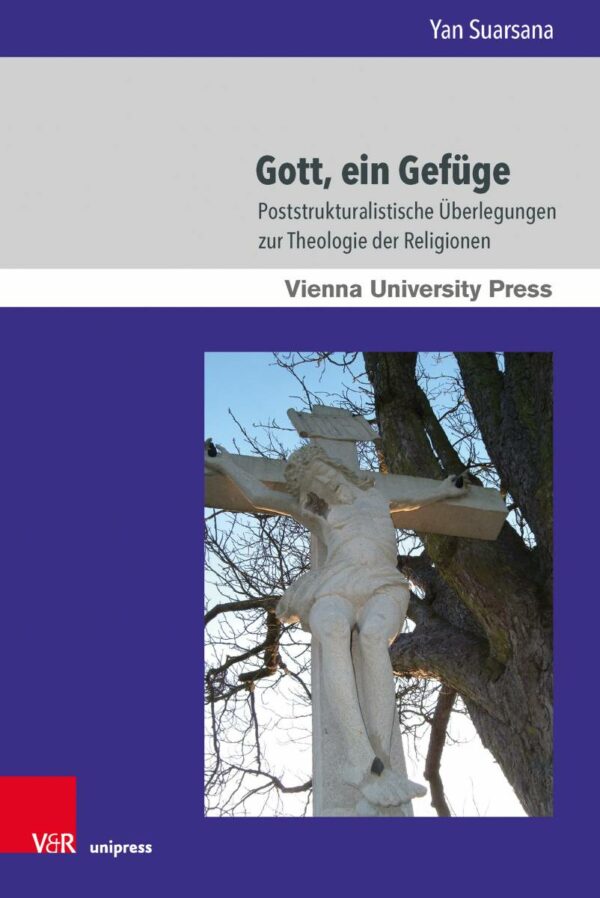 Gott, ein Gefüge. Poststrukturalistische Überlegungen zur Theologie der Religionen
Gott, ein Gefüge. Poststrukturalistische Überlegungen zur Theologie der ReligionenThis book extends the contemporary debate on the global concept of religion, conducted in the context of religious studies, to the field of the theology of religions. In applying poststructuralist and postcolonial perspectives, it seeks to deconstruct central categories such as truth, universality, or religion, in order to contextualize them by making transparent their historical genealogy and entanglement with political, social, and scientific discourses. Further, it aims to outline new areas of thinking, which can serve as the experimental basis of an alternative, non-essentialist form of theology (of religions).
-
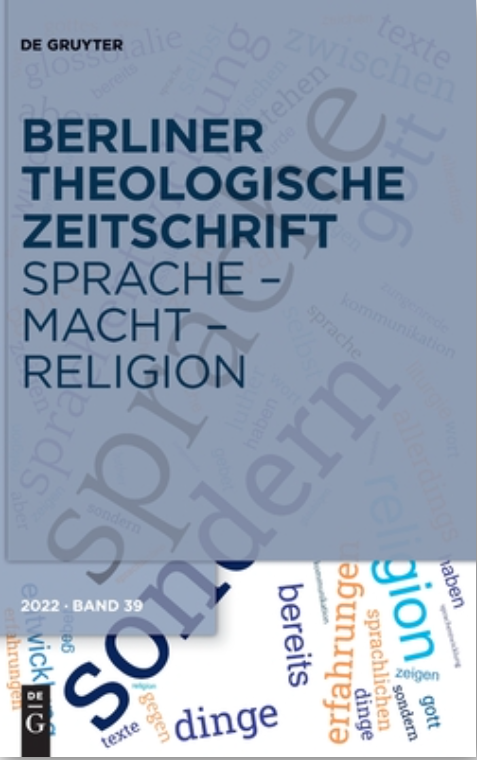 Religion im kolonialen Archiv
Religion im kolonialen ArchivBerliner Theologische Zeitschrift 39. 309–335. ISBN: 9783110787108
-
 How to Shape Black Diasporic Identity in France by Reading (About) Literature
How to Shape Black Diasporic Identity in France by Reading (About) LiteratureThis article gives an overview of francophone African diasporic websites such as Africultures.com, africavivre.com and other digital magazines, networks and blogs that are present on different platforms. Taking recent novels, texts of liter- ary criticism, reviews and comments as examples, I analyse in what way they share in discourse about diasporic and migratory identity positions of Afropéens (‘Afropeans’) (and differ therein from other readings of the same novels). Methodologically, I draw on Stephen Greenblatt’s concepts of self-fashioning and circulation of social energy as well as on Pierre Bourdieu’s notion of the produc- tion of social capital. With respect to socially preformed discursive formation of Black people as an ostensibly homogeneous minority in the twenty-first century France, I refer to Pap Ndiaye’s ground-breaking study La condition noire from 2009 which closely analyses the complex situation of the Black migrant and post- migrant population. I focus on two narrative texts which are widely perceived both in France and on an international level: First, the autobiographically inspired novel Le Ventre de l’Atlantique (The Belly of the Atlantic) by Fatou Diome and second, Marie Ndiaye’s narrative triptych Trois femmes puissantes (Three Strong Women). Studying remarks and comments of literary criticism concern- ing these texts on francophone African diasporic websites, I raise the following questions: What relevance do these narrated characters (still) have today? To what extent do they shape the discourse of Black migrants in France? What kind of interpretation of the colonial history and context do they offer? And which emancipatory moments and decolonial strategies create a new, proper symbolic capital and, thus, add to the Imagined Community of ‘Noirs en France’ (‘Black people in France’)?
-
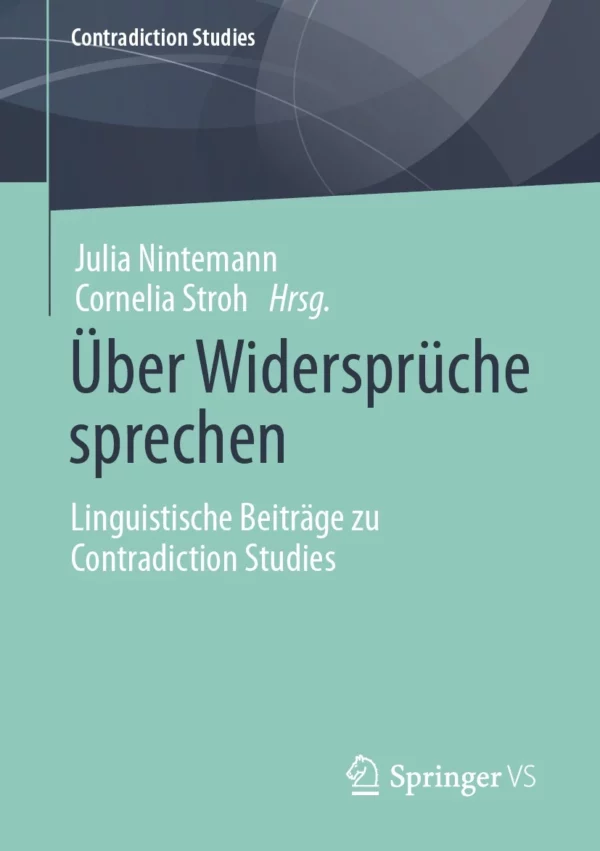 Über Widersprüche sprechen. Linguistische Beiträge zu Contradiction Studies
Über Widersprüche sprechen. Linguistische Beiträge zu Contradiction StudiesDer Fokus des Bandes liegt auf Widerspruch als Gegenstandsbereich, unter den sprachliche Ausdrucksformen von Entgegensetzung, Paradoxie, Lüge und Einspruch ebenso fallen wie linguistische Methoden des Umgangs mit Widerspruch und Widersprüchlichkeiten in der sprachwissenschaftlichen Disziplinengeschichte. Dabei stellt sich die Linguistik nicht als homogene, sondern vielmehr als eine heterogene, vielseitige Disziplin dar, die es erlaubt, den Forschungsgegenstand aus verschiedenen Blickwinkeln zu betrachten; die Beitragenden präsentieren insofern verschiedene innerdisziplinäre Schwerpunkte von linguistischer Widerspruchsanalyse, darunter der Blick auf Sprachhandlungen zum Ausdruck von Widerspruch in wissenschaftlichen, historischen, (post)kolonialen, narrativen oder alltäglichen Diskursen. Es werden einzelsprachliche Untersuchungen nicht nur europäischer Sprachen vorgenommen, sondern auch die crosslinguistische Vielfalt von widerspruchsindizierenden Konstruktionen betrachtet.
-
 Geschichtsdenken in historischen Romanen über die Vormoderne
Geschichtsdenken in historischen Romanen über die VormoderneIn the face of growing populism and right-wing radicalism, the fight against historical forgetfulness in thought and action is once again highly topical. At first glance, however, historical forgetfulness – at least in relation to the pre-modern era – hardly seems to exist: The Middle Ages, Renaissance and early modern period are experiencing a boom in novels, dramas and popular media. But here in particular, there is an urgent need for an active response to simplifications, mythifications and falsifications. The contributors to this volume show that it is essential for a critical consciousness to be aware of historical difference and media filters and to reflect on their effects. In the face of growing populism and right-wing radicalism, the fight against historical forgetfulness in thought and action is once again highly topical. At first glance, however, historical forgetfulness – at least in relation to the pre-modern era – hardly seems to exist: The Middle Ages, Renaissance and early modern period are experiencing a boom in novels, dramas and popular media. But here in particular, there is an urgent need for an active response to simplifications, mythifications and falsifications. The contributors to this volume show that it is essential for a critical consciousness to recognize historical difference and media filters and to reflect on their effects.
-
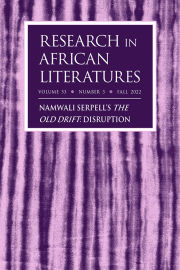 Namwali Serpell’s The Old Drift: Disruption (Special Issue)
Namwali Serpell’s The Old Drift: Disruption (Special Issue)Research in African Literatures, the premier journal of African literary studies worldwide, serves as a stimulating vehicle in English for research on the oral and written literatures of Africa. Reviews of current scholarly books are included in every number, and a forum offers readers the opportunity to respond to issues raised in articles and book reviews.
-
 Wir wollen nicht mitreden, sondern eine andere Sprache. Sprachideologische Positionierung im Diskurs der Identitären Bewegung
Wir wollen nicht mitreden, sondern eine andere Sprache. Sprachideologische Positionierung im Diskurs der Identitären BewegungIn Wiener Linguistische Gazette (WLG) 91 (2022). 1-36.
-
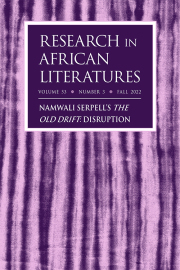 State of the Planet. Homi Bhabha and Namwali Serpell in Conversation
State of the Planet. Homi Bhabha and Namwali Serpell in ConversationAfter explaining the rationale for bringing the author of The Old Drift, Namwali Serpell, and critical theorist Homi Bhabha into conversation, this interview with both of them explores some of the key themes of Serpell’s novel in relation to its wider geopolitical and historical context. Beginning with how we can understand the state of the planet in the present historical moment, the discussion expands to explore the broad context of more themes in the novel, which includes the place of gender and sexual politics, a global pandemic in a time of national and financial closures, cosmopolitanism, the space race and reverberations of the Cold War in the present, and the continued relevance, if any, of postcolonial theory, technology, revolution, and futurity.
-
 Neues Wahrnehmen
Neues WahrnehmenManege für Architektur (Heft 2: Automationen). 36-37. https://mfa.one/manege-2/
-
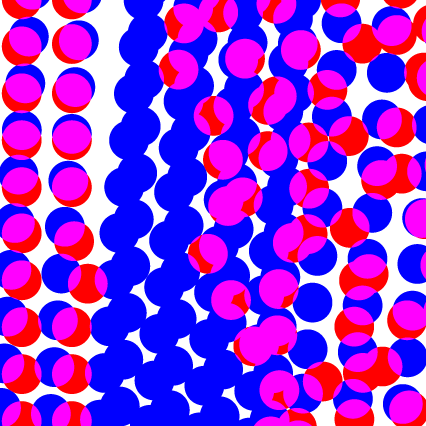 Being “in-tact” and well: metaphysical and phenomenological annotations on temporal well-being
Being “in-tact” and well: metaphysical and phenomenological annotations on temporal well-beingWell-being depends not only on what happens but also on when it happens. There are temporal aspects of well-being, and to a large extent those aspects are about relative timing—about being “in-tact.” On the one hand, there is a perspectival aspect about being in-tact with one’s past, present, and future or, in a less involved sense, with one’s life as a whole. On the other hand, there is a synchronization aspect of being in-tact; and this aspect occurs on different levels: It might be about the alignment between different temporal domains—such as time as individually perceived and physical or intersubjective time. Or it might be about a single domain, especially the inner dynamics of individual time. The danger of not experiencing and acknowledging the relational character of these different timings likely leads to a substantial loss in the variety of human experience. Important aspects of subjective and intersubjective experience might fade away. The present paper discusses these aspects of well-being along the lines of distinctions and concepts prominently used in the metaphysics and the phenomenology of time. Thus, the paper also aims to complement the existing literature by bringing together important strands of current philosophical research.
-
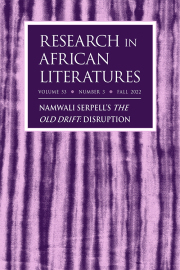 Introduction. Namwali Serpell’s The Old Drift: Disruption
Introduction. Namwali Serpell’s The Old Drift: DisruptionResearch in African Literatures 53(3). 1-22. https://www.muse.jhu.edu/article/900030
-
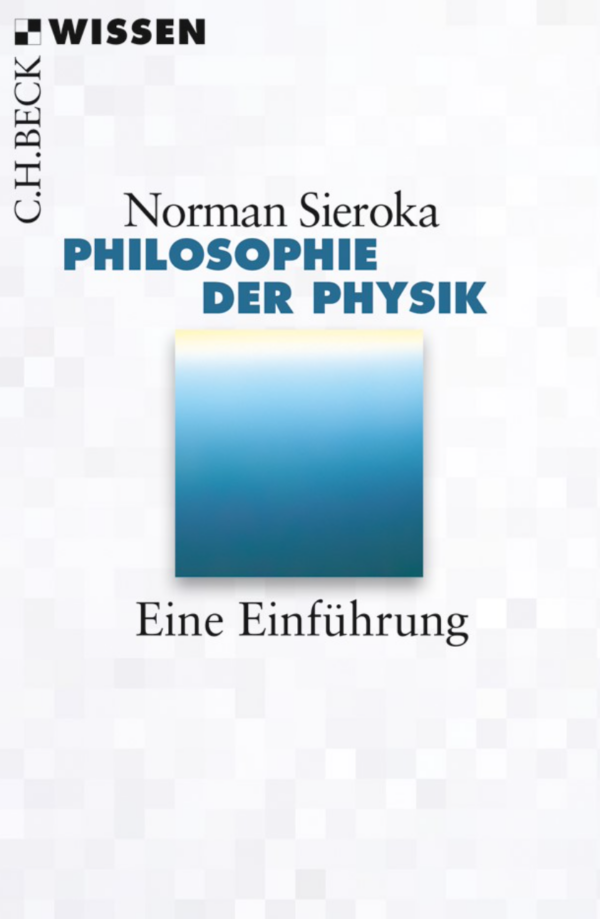 Philosophie der Physik. Eine Einführung
Philosophie der Physik. Eine EinführungThis volume offers a systematic and generally understandable introduction to philosophical questions in physics and its historical development. It begins with a presentation of important stages in the history of physics in antiquity, the early modern period and the past two centuries, and uses them to illustrate central epistemological features of physics. It discusses typical explanatory strategies, the role of experiments and predictions, the procedure for forming concepts and theories and the importance of mathematics.
-
 Radikale Demokratietheorie als Gesellschaftstheorie
Radikale Demokratietheorie als GesellschaftstheorieIn Martin Nonhoff, Sebastian Haunss, Tanja Klenk, Tanja Pritzlaff-Scheele (eds.) Politik und Gesellschaft verstehen. Frank Nullmeier zum 65. Geburtstag. Frankfurt/Main: Campus, 49–64. printISBN: 9783593516660 eBookISBN: 9783593453088
-
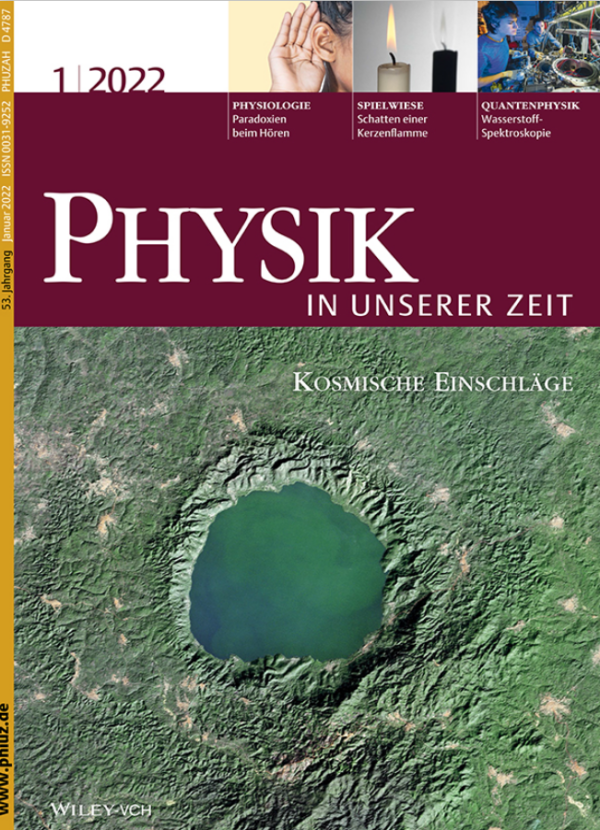 Paradoxien beim Hören
Paradoxien beim HörenDealing with auditory oddities and ambiguities is not only entertaining, it is also an important driver for basic auditory research. The same acoustic stimulus can actually be perceived in different ways. We not only hear “with our ears”, but various other physical, physiological and cultural factors also play an important role. This directly gives rise to broader philosophical questions, for example on perception – and the enduring appeal of pieces of music is also based in many places on such ambiguities [13].
-
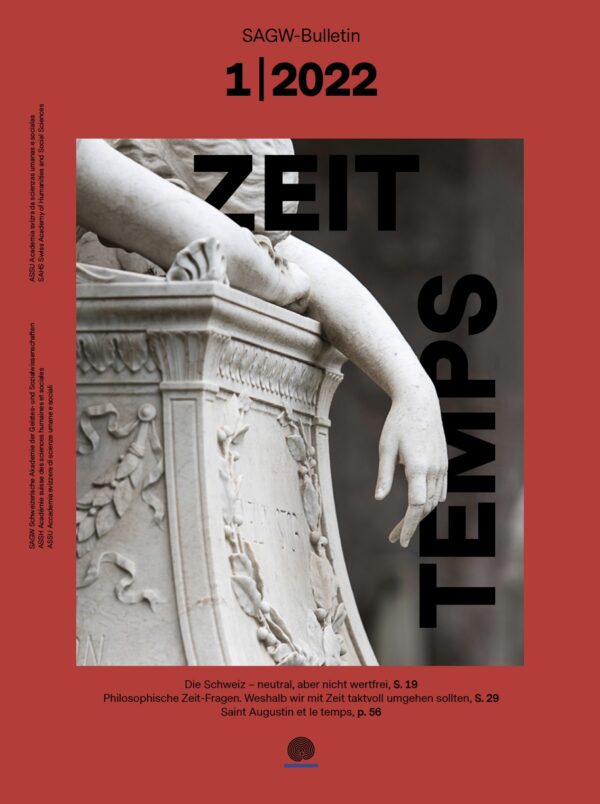 Philosophische Zeitfragen. Weshalb wir mit Zeit taktvoll umgehen sollten
Philosophische Zeitfragen. Weshalb wir mit Zeit taktvoll umgehen solltenZeit spielt eine grundlegende Rolle im menschlichen Leben. Zu bestimmen, was ihr Wesen ausmacht, ist bekanntermassen nicht einfach – und ist vielleicht auch nicht die philosophisch interessanteste Herausforderung. Wichtiger scheint es, verschiedene Lebensbereiche zunächst auf ihre unterschiedlichen Zeitauffassungen hin zu untersuchen und sich zu fragen, wie sie sich aufeinander beziehen. Für unseren Umgang mit Zeit ist das Entscheidende: Wie lassen sich Ereignisse sinn- und taktvoll aufeinander abstimmen?
-
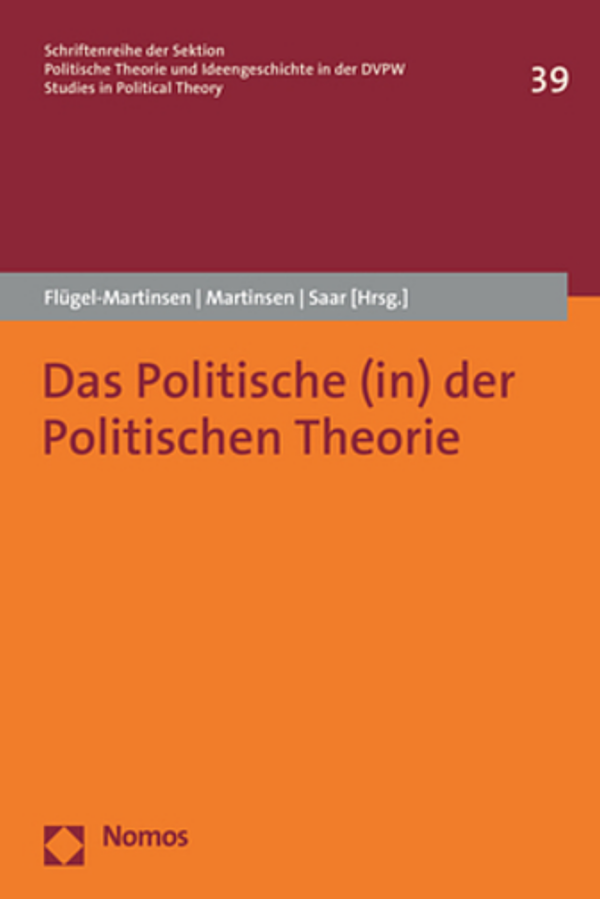 Das Politische und die Option auf Herrschaftskritik, oder: Populismus
Das Politische und die Option auf Herrschaftskritik, oder: PopulismusIn Flügel-Martinsen, Oliver, Franziska Martinsen & Martin Saar (eds.) Das Politische (in) der Politischen Theorie. Stuttgart: Nomos. printISBN: 978-3-8487-8414-1 ebook ISBN: 978-3-7489-2790-7
-
 Realismus, Groteske, Ethik des Überlebens in der aktuellen haitianischen gesellschaftskritischen Literatur am Beispiel von Kettly Pierre Mars
Realismus, Groteske, Ethik des Überlebens in der aktuellen haitianischen gesellschaftskritischen Literatur am Beispiel von Kettly Pierre MarsIn Brühne, Julia, Christiane Conrad von Heydendorff & Cora Rok (eds.). 2021. Re-Konstruktion des Realen: die Wiederentdeckung des Realismus in der Romania (Romanica Band 11). Göttingen: V&R unipress, Mainz University Press. 151–178. ISBN: 978-3-8471-1352-2
-
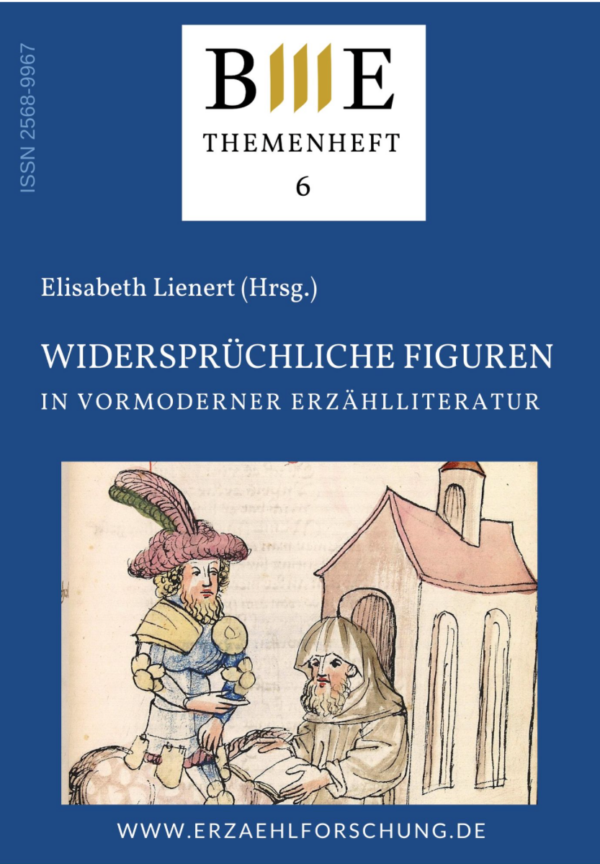 Einleitung. Was ist eine widersprüchliche Figur?
Einleitung. Was ist eine widersprüchliche Figur?BmE Themenheft 6. Widersprüchliche Figuren in vormoderner Erzählliteratur: 1–23 DOI: 10.25619/BmE2020396
-
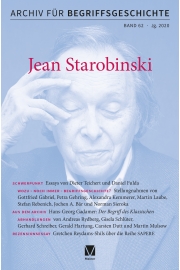 Begriffsgeschichte und Einzelwissenschaften
Begriffsgeschichte und EinzelwissenschaftenIn Carsten Dutt, Hubertus Busche & Michael Erler (Hrsg.) Schwerpunkt: Jean Starobinski (Archiv für Begriffsgeschichte Band 62 (Jg. 2020)). Hamburg: Felix Meiner Verlag. ISBN: 978-3-7873-3946-4
-
 Die Zeit in ihrer Vielfalt denken. Anmerkungen aus philosophischer Perspektive
Die Zeit in ihrer Vielfalt denken. Anmerkungen aus philosophischer PerspektiveThe aim of this paper is to sketch an approach for integrating the historiography of the sciences and of philosophy. More precisely, the paper suggests a method for investigating interactions within transdisciplinary constellations of researchers working in philosophy and in the exact sciences. I start off by introducing specific notions of analogy, variation, and conceptual space which provide the main ingredients of this method. The notion of a conceptual space, as well as other characteristics of the present approach, are adaptations from so-called constellation research. Originally, constellation research was developed for the historiography of philosophy – especially in the context of the origins of German idealism. However, as I will argue in the second half of the paper, it is adaptable to the historiography of science, especially of the exact sciences. To support this claim and to illustrate the integrative power of the present approach, I will (i) compare the notions of a constellation and a conceptual space with Ludwik Fleck’s notions of a »thought collective« and a »style of thought«, (ii) critically evaluate the distinction between contexts of discovery and of justification in a historiographical context, and (iii) relate the notions of analogy and variation, as introduced in the first part of the paper, to current debates about what is sometimes called »invariantism« in the philosophy of science.